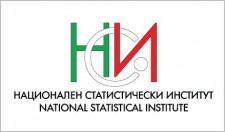Bulgaria: A rising star in Europe’s economy
Award winning journalist and Exante director Patrick O’Brien recently visited BCCI and spoke with BCCI President Tvestvan Simeonov
Bulgaria, often regarded as one of the most secluded corners of Europe*, is now attracting the interest of foreign investors and analysts alike. The country, with the smallest economy in the European Union, may have gone unnoticed by some, but recent events point to a more vibrant and promising future.
In an interview with Exante director Patrick O’Brien, the Bulgarian Chamber of Commerce president Tsvetan Simeonov, a professional lawyer by trade, said that he believes better times are coming for his country. With over 45,000 members in the BBCI, Simeonov and his team continue to assist, promote, represent, and protect the business interests of its members, while contributing to the development of international economic cooperation and supporting Bulgaria's European and international integration.
"This is a very important and significant achievement for Bulgaria,” Simeonov said, adding that, “Together with membership of the Schengen area, the eurozone is expected to have a number of positive effects on the Bulgarian economy, such as more investment, an increase in the sovereign credit rating, higher wages, and a boost to sectors such as tourism and trade."
Simeonov believes Bulgaria’s euro area membership will not only mark a significant achievement for the country with important benefits for its economy, but will also reinforce the strength, resilience and voice of the euro area. Investors, too, are looking for reform before they dip their toes back into Bulgaria, but their contribution is crucial if Bulgaria is to close the convergence gap with other EU countries.
Fears of inflation, poverty and the unknown are mingling with disinformation spread on social media that aims to turn people against the euro.
It is true that joining a common currency union does come with trade-offs. These include the loss of an independent monetary policy, a mandate to adhere to bloc-wide fiscal rules and the risk of being impacted by economic shocks that occur elsewhere in the union.
In updating its country internal strategies, the government has highlighted three priorities: enhancing the competitiveness of the private sector, including small and midsize enterprises and further boosting Bulgaria’s appeal as an FDI target; boosting the resilience of the financial system to make it more flexible and capable of absorbing EU funds; and supporting the green transition by boosting the use of renewables, raising energy efficiency, and improving long-term energy security.
The euro is no silver bullet**. Bulgaria’s structural challenges, emigration, corruption, weak demographics will outlive the currency change and continue to cap GDP growth over the next decade. But euro adoption will anchor Bulgaria to the EU, lock in policy credibility and reduce external vulnerabilities.
Link to the full text of the publication here
-----------------
Editor’s note:
*According to the index and international rankings regularly monitored by the BCCI, Bulgaria ranks 23rd out of 45 European countries in terms of Gross Domestic Product, specifically Real GDP based on purchasing power parity. Countries such as Slovakia, Croatia, Lithuania, Slovenia, and Estonia remain behind Bulgaria. In 2024, Bulgaria reported GDP growth for the 11th consecutive year, and in the first quarter of 2025, the country ranked fourth among EU member states in year-on-year GDP growth, with an increase of +3.1% percent year-on-year.
Editor’s note:
**Bulgaria has also demonstrated strong fiscal discipline, as confirmed by the stable exchange rate of the lev against the euro. This stability indicates that the Bulgarian economy is resilient to exchange rate fluctuations. For comparison, in countries without plans to adopt the euro, significant currency depreciation has been observed:
- Dynamics EUR vs HUF (Hungarian forint), percentage 2010–2024: 43.49%
- Dynamics EUR vs PLN (Polish zloty), percentage 2010–2024: 7.79%
- Dynamics EUR vs RON (Romanian leu), percentage 2010–2024: 18.10%
- Dynamics EUR vs BGN (Bulgarian lev), percentage 2010–2024: 0%
- Dynamics EUR vs CZK (Czech koruna), percentage 2010–2024: –1%
Altre notizie:
-
14-08-2025
-
31-07-2025

 1 USD =
1 USD =  1 GBP =
1 GBP =  1 CHF =
1 CHF =  ISO 9001:2015
ISO 9001:2015























